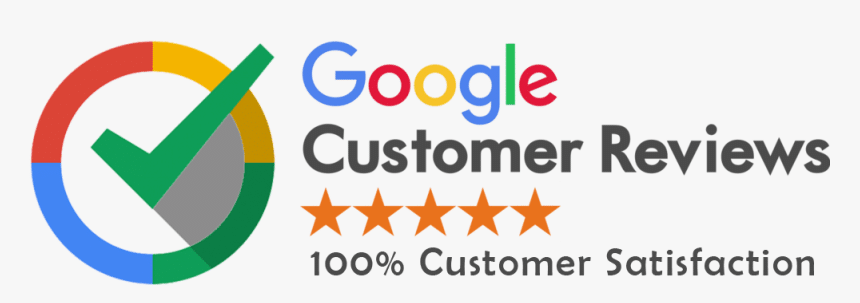Creating a website has become easier than ever before. Thanks to website builders, you don’t need to be a professional coder or designer to build a stunning and functional website. Whether you’re a small business owner, a freelancer, an artist, or someone looking to start a blog, there is a website builder made just for you.
But how do you choose the right one? With so many options like WordPress, Wix, Squarespace, Shopify, Webflow, and others, making the right choice can be confusing. Each builder has its own strengths, limitations, and ideal users. This article helps you understand which builder matches your goals, skills, and budget.
Understanding Website Builders
A website builder is a tool that allows users to design and launch a website without writing code. These platforms offer drag-and-drop features, templates, hosting, and built-in tools that simplify the process. Most builders are aimed at non-technical users but also provide advanced features for developers and designers.
Website builders aim to:
- Save time by simplifying the design and coding process
- Allow non-coders to create and maintain websites easily
- Offer professional templates and tools to enhance visual appeal and usability
What Type of User Are You?
Before choosing a builder, it’s important to identify your needs and skills. Here are four common categories:
Beginner or Non-Technical User
You have little or no experience in web design. You want something that guides you step-by-step. Your main goal is to publish a good-looking site quickly and easily.
Recommended Builders: Wix, Squarespace
Intermediate Designer
You may have some knowledge of design tools like Photoshop. You want to use beautiful templates but also prefer control over how the design looks. Coding is not your strong suit.
Recommended Builders: Squarespace, WordPress.com
Advanced Developer or Hybrid User
You are comfortable with HTML, CSS, and JavaScript. You want a tool that allows design flexibility but also lets you control the code when needed.
Recommended Builders: Webflow, WordPress.org
Business Owner or Store Manager
You want to create a professional site for your brand, product, or service. E-commerce tools and SEO features are very important.
Recommended Builders: Shopify, Wix (for small shops), WordPress with WooCommerce
Popular Website Builders Compared
| Builder | Best For | Pros | Cons |
|---|---|---|---|
| WordPress.org | Blogs, All-Purpose | Full control, plugins, SEO-friendly | Needs hosting, learning curve |
| Wix | Beginners, Small Biz | Easy drag-and-drop, many templates | Limited control, can be slow |
| Squarespace | Portfolios, Creatives | Sleek templates, built-in features | Less flexible, higher pricing |
| Shopify | E-Commerce | Best for online stores, secure payment tools | Monthly fees, limited design freedom |
| Webflow | Developers, Agencies | Advanced design, code access | Complex for beginners |
Choose Based on Your Purpose
- Blogging: WordPress.org or Squarespace
- E-Commerce: Shopify or Wix (for smaller stores)
- Portfolio Website: Squarespace or Webflow
- Business Website: WordPress or Wix
- Educational Website: WordPress with LearnDash or Teachable
Key Features to Consider
When selecting a website builder, don’t just look at the design. Focus on features that matter to your website goals.
- Ease of Use: Drag-and-drop, visual editor, onboarding tools
- Design Flexibility: Customization options, template variety
- Mobile Responsiveness: Your site should look great on all devices
- SEO Tools: Meta tags, page speed, sitemap generation
- E-commerce Support: Shopping cart, payment gateways, product pages
- Pricing: Monthly vs yearly, free trials, value for money
- Customer Support: Chat, email, knowledge base availability
Scalability and Growth
Think long term. Will your site grow over time? Will you need more features later?
- Wix and Squarespace are great for small projects but can become limiting as your business expands.
- WordPress is highly scalable but requires some technical knowledge.
- Shopify can handle stores of all sizes, but monthly costs can increase with more features.
Choose a builder that can grow with your needs.
SEO and Speed Performance
Search engine visibility is key for traffic. A slow or poorly optimized site can hurt your rankings.
- WordPress offers full SEO control with plugins like Yoast.
- Wix and Squarespace have built-in SEO tools but less flexibility.
- Webflow gives developers full control over structure and speed.
Make sure your site loads fast, has clean URLs, and proper meta data.
Design Examples and Templates
Each builder offers templates designed for different industries. A few examples:
- Wix: Restaurants, Fitness, Blogs, Local Businesses
- Squarespace: Photography, Fashion, Portfolio, Consulting
- WordPress: News, Blogs, eCommerce, Membership sites
- Shopify: Online shops with product catalogs and secure checkout
Explore templates before you choose.
Pricing Overview (Estimated Monthly)
| Builder | Basic Plan | Business Plan | E-Commerce Plan |
| WordPress.org | Free | $5 – $10 | Depends on host |
| Wix | $10 | $20 | $25 – $30 |
| Squarespace | $12 | $18 | $26 |
| Shopify | – | – | $29 – $299 |
| Webflow | $14 | $29 | $42+ |
Note: Some builders include hosting, others (like WordPress.org) require separate hosting.
Checklist Before You Decide
- What is your website’s main purpose?
- What is your technical skill level?
- Do you need e-commerce or blog features?
- Is SEO and mobile performance important?
- What is your monthly budget?
- Do you want complete control over design and code?
- Are you building it once or updating regularly?
Answering these will help guide your decision.
Recommendations by RedSpider
- If you’re just starting out and want speed: Go for Wix
- If design and beauty matter most: Try Squarespace
- For full control and flexibility: Use WordPress.org
- For serious online selling: Shopify is a strong choice
- For custom development with visual tools: Go with Webflow
Final Thoughts
Choosing the right website builder depends on your goals, budget, and comfort level. There is no one-size-fits-all. Take time to explore demos, compare features, and test free trials where possible. The right tool will save you time, money, and frustration while helping you build a professional online presence.



